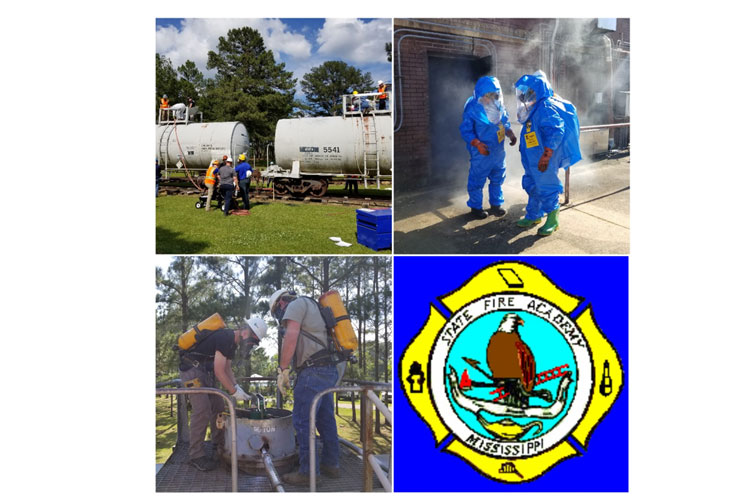

By Robyn Kinsley, The Chlorine Institute
Chlorine manufacturing, transportation, and use are managed under controlled circumstances with numerous safety precautions designed to prevent an unintended release. An important component of chlorine stewardship is developing and maintaining response plans in the event of an emergency. One of the key missions of The Chlorine Institute (CI or the Institute) [1] is to ensure that systems and procedures are in place to minimize the impact on the public should an accidental release occur.
To accomplish this task, CI in 1972, formalized the CHLOREP® [2] network, which is a 24/7 mutual aid program that is recognized today as the premier emergency response mutual aid network among chemical shippers. The U.S. and Canada are divided into specific regions each covered by response teams composed of industry experts to respond to any chlorine transportation or end-user incident in their region, regardless of the shipper or customer. The program’s unparalleled reputation is due to several factors, including the high level of training and experience each CHLOREP response team possesses.
For many years the Institute conducted chlorine emergency response training at various locations every three or four years. In 2006, with about 50 CHLOREP teams at the time, CI’s Emergency Preparedness Issue Team (EPIT) recognized that more frequent, uniform training was needed to assure the highest level of preparedness. This was especially true because of retirement and generational turnover and the need to train new responders joining the teams. EPIT members decided that training should be offered annually and therefore set out to evaluate possible training sites.
After extensive research, the task group unanimously recommended the Mississippi State Fire Academy (MSFA) outside of Jackson. Located near the Gulf Coast, with a nearby airport and ease of access, MSFA has ample training space, front-line equipment and an extraordinary team of professionals. The facilities met CI’s needs, and MSFA staff worked with CI to tailor their programs for CI’s specific requirements. The result? The CHLOREP Team Training program as we know it today was restructured in April of 2007 with 76 students in attendance.
Training consists of a blend of classroom presentations and field exercises focused on chlorine emergency response. Classroom sessions are aimed to prepare students for the field exercises that follow. The field exercises simulate realistic situations so that industry and stakeholders can be better prepared to respond to chlorine emergencies in the future.
Feedback received in 2007 and every year thereafter confirmed the program successfully taught and reinforced the skills required by the individual company CHLOREP teams, a tribute to the cooperation of our partners at MSFA. Some of the tangible signs of success include record attendance in 2016 by 118 students and 55 instructors/support staff and the growth of the CHLOREP network to today’s 90-member response teams.
The annual CHLOREP Training at MSFA is a great forum for sharing ideas and best practices by the teams. Participation in the training also brought about a sense of community among industry emergency responders, which transcends companies and regions throughout the U.S. and Canada. As an industry, we are much better prepared to respond to a chlorine emergency because of the partnership with MSFA and the maturation of the CHLOREP network that is fostered by our rigorous annual training. The Chlorine Institute looks forward to continuing this long-standing partnership with the Mississippi State Fire Academy, which has been instrumental in raising the level of industry preparedness to new highs.
Find out more at https://www.chlorineinstitute.org.
[1] CI is a not-for-profit trade association that exists to support the chlor-alkali industry in advancing safe, secure, environmentally compatible, and sustainable production, distribution, and use of its mission chemicals.
[2] Chlorine Emergency Plan (CHLOREP®)
ALSO
Chlorine Institute Sponsors Free Training for Emergency Responders
HYDROCHLORIC ACID TRAINING VIDEO
60,000 Emergency Responders Receive Anhydrous Ammonia Safety Training


